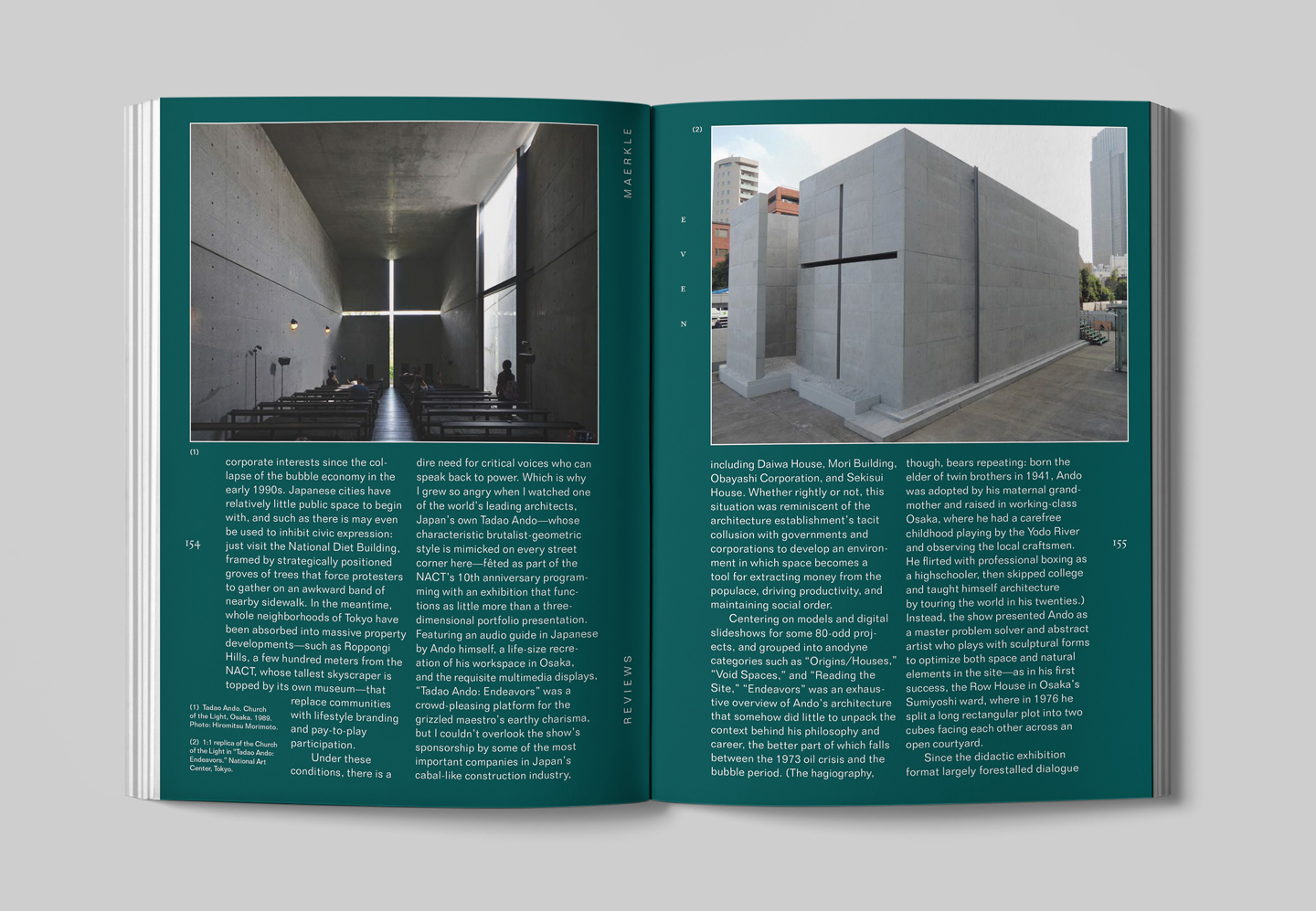Concrete Evidence
by Andrew Maerkle

The fiasco surrounding Tokyo’s planned New National Stadium, well documented in the international press, laid bare the ethical bankruptcy of the Japanese leadership. When Zaha Hadid’s futuristic design was announced in late 2012 as the winner of the hastily organized international competition, it came across as a transparent grab for international headlines in the run-up to the host city selection. Then criticisms mounted over the extravagance of the project, and the fact that parts of the stadium would encroach upon the grounds of the Meiji Shrine. (Leading the charge was the octogenarian architect Fumihiko Maki, rumored to have a vendetta against Tadao Ando — who by that time was undergoing intensive cancer treatment.)
The whole situation followed an ugly pattern of bullying and ostracism epitomized in Japanese school life: at first Hadid was asked to revise her plan, but when a second competition was summarily announced in 2015, after two years of groundwork, she was shunned by the local contractors whom she asked to join her bid — even as the Japan Sports Council tried to extort the transfer of copyright for her design by withholding an overdue payment. Hadid died of a heart attack in March 2016, perhaps not entirely unrelated to the stress caused by the utter irresponsibility of the Tokyo Olympics organizers and its profiteers, beginning with the Super Mario prime minister, Shinzo Abe, who sees the event as an instant tonic for revitalizing the economy, distracting people from the fallout of the 2011 Fukushima nuclear disaster, and lubricating his nationalist-populist agenda.